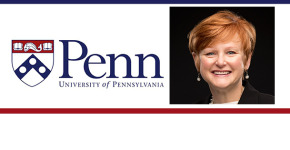![]()
In a new study, we found that 31 million students enrolled in college during the past 20 years left without receiving a degree or certificate.
The study noted a group of “potential completers,” students with no degree or certificate, but who had completed two or more years of academic work. These “potential completers” represent nearly four million of the 21 million former students who had more than a single term of enrollment.
Of the “potential completers”, most have already made significant progress to a two- or four-year degree or certificate. Furthermore, nearly three-quarters were under the age of 30 when they last enrolled. About half of them attended a single institution, while another third attended two institutions. These students represent an untapped reservoir of educational capital that can increase education attainment in the short-term.
A greater challenge is re-entry students, those who have two or more enrollment records, called “multiple-term enrollees.” Of the “potential completers” who enrolled in multiple terms, one-third began and ended their postsecondary enrollments within a year.
Of all potential completers, a little over one-third attended exclusively two-year institutions and a similar proportion attended exclusively four-year institutions while about 29% attended both two- and four-year institutions. Furthermore, of potential college completers, 17% have seven or more years since their last enrollment. For those over 30 years of age, the figure is 25%.
In what ways are clear educational pathways making a difference in college completion efforts? To what extent does college preparation and affordability explain non-completion rates for potential completers? What types of transfer pathways make a difference in college completion? How have colleges and universities accommodated adult students to help them complete their degrees?
As you can see, the study raises important questions to guide further research about college completion.


Not everyone takes the traditional four-year path through the university system.
Joni Finney, professor at The University of Pennsylvania, discusses some non-standard routes toward graduation.
Dr. Joni Finney is Director of the Institute for Research on Higher Education (IRHE) and Professor of Practice at the Graduate School of Education of the University of Pennsylvania. She is also an affiliate with the Wharton Public Policy Initiative. At Penn, Dr. Finney initiated and was Co-Principal investigator of a five state study to understand how public policies explain higher education performance; The Attainment Agenda (2014) highlights findings from this study.
Prior to joining the University of Pennsylvania, Dr. Finney was vice president of the National Center for Public Policy and Higher Education where she developed and directed the nation’s first biennial state-by-state report card for higher education, Measuring Up. She was principal author of the 50 state-by-state report cards from 2000-2008. Prior to that, she held senior leadership roles at the California Higher Education Policy Center and the Education Commission of the States. She has worked with governors and legislators from more than 25 states and testified before congressional and state legislative committees. Finney co-authored three other volumes, Public and Private Finance of Higher Education: Shaping Public Policy for the Future; Designing State Higher Education Systems for a New Century; Financing American Higher Education in an Era of Globalization and numerous policy reports and articles on higher education. She is a founding board member for the National Student Clearinghouse Research Center and a board member of several non-profit organizations. She is chair of the national selection committee for the Virginia B. Smith Innovation Award in American Higher Education.
College Completion